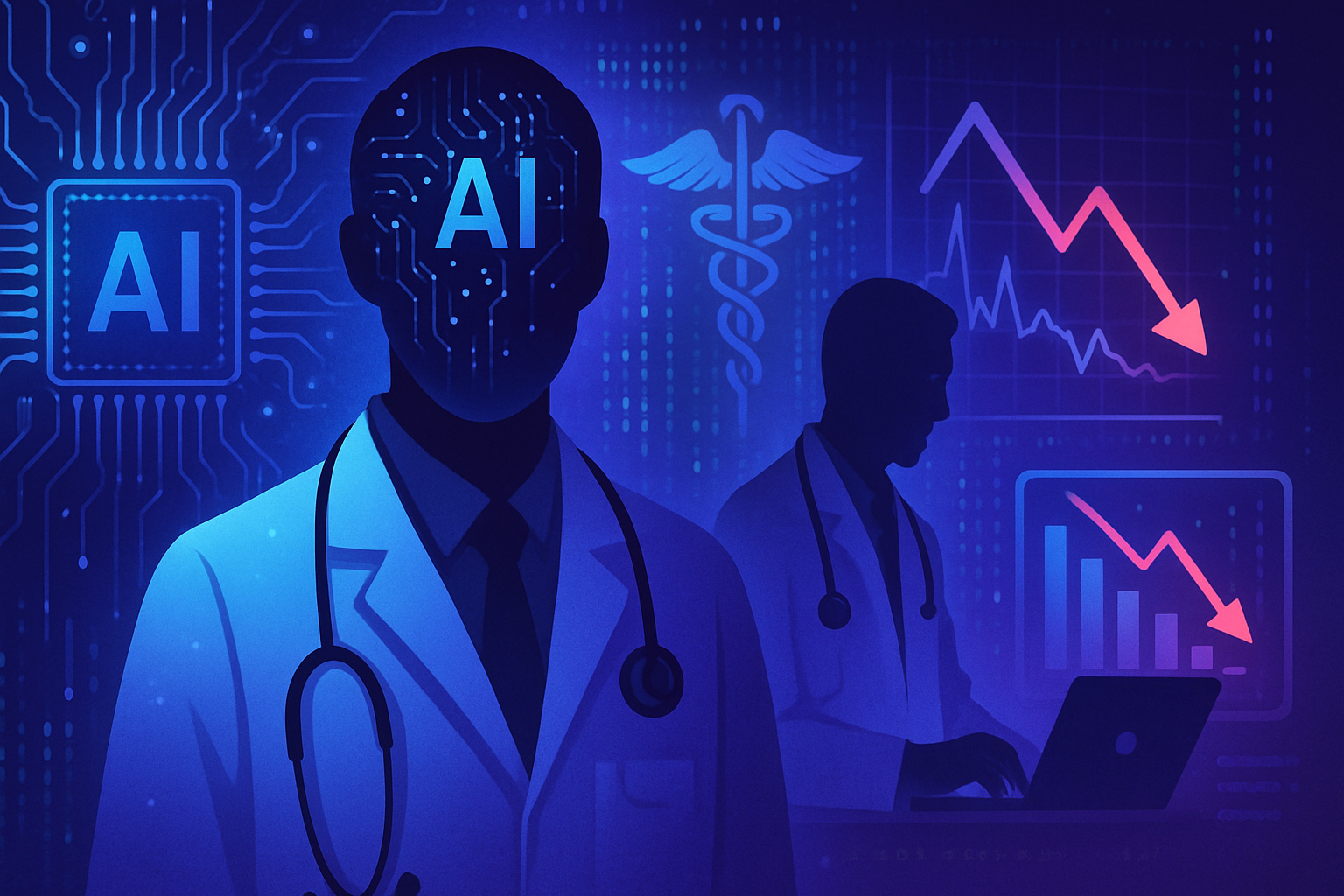The latest results from a recent study highlight an <strong alarming dependence of doctors on artificial intelligence tools. This finding raises questions about the diagnostic competence of healthcare professionals when these technologies are not available. The negative impact on cancer detection reveals a concerning dynamic: *excessive use of AI alters human capabilities*. Researchers, after observing over 1400 colonoscopies, noted a performance decrease of 6%, a striking reality for the future of medical practices.
Study on the Impact of AI on Doctors
The scientific journal The Lancet recently published a disturbing study regarding the dependence of healthcare professionals on artificial intelligence (AI) tools. The results indicate that frequent use of these technologies could impair doctors’ ability to make diagnoses without assistance.
Study Methodology
The researchers studied over 1400 colonoscopies performed in Poland between September 2021 and March 2022. The analysis compared the performance of gastroenterologists before and after the introduction of AI tools in several endoscopy centers. Among the 800 interventions carried out prior to this adoption, polyp detection rates were more favorable.
Alarming Results
The results revealed that, after the integration of AI systems, the polyp detection rate dropped by 6% during colonoscopies performed without AI assistance. This significant figure raises concerns about the growing dependence of doctors on technological tools.
Commentary from Researchers
Dr. Marcin Romanczyk, one of the authors of the study, expressed reservations about the impact of AI, which seems to harm the motivation and concentration of physicians. The professionals studied were less responsible, thus impairing their ability to detect abnormalities without technological support.
Contributory Factors
Experts agree that the increased workload of doctors during these six months could also explain this drop in performance. Accumulated fatigue might lead to reduced vigilance and analytical capability during examinations.
Consequences for the Medical Sector
The implications of these results are significant for the use of AI tools in healthcare. The speed at which these changes have affected the behavior of physicians warrants particular attention. The growing technological dependence could thus deteriorate essential human skills in critical diagnostics.
Broader Reflection
The results of this study invite reflection on the balance to be maintained between technological advancements and human skills. The debate surrounding the adoption of AI needs to be broadened, taking into account the potential effects on medical practice. To learn more about the role of AI in other areas, an analysis of the repercussions of its use becomes paramount.
For reflections on managing AI in other contexts, such as the use of AI in life coaching, consult this article here.
The advances and challenges posed by AI, whether pertaining to cyberattacks as mentioned in Russia or other sectors, should be monitored closely with vigilance here.
For insights on leadership and AI challenges, discover the article here.
Frequently Asked Questions about the Impact of AI in the Medical Field
What are the main findings of the study on the use of AI by gastroenterologists?
The study revealed a 6% decrease in the polyp detection rate during colonoscopies performed without AI assistance after physicians utilized these tools, suggesting an increased dependence of practitioners on AI.
How does AI influence doctors’ ability to detect cancer?
According to the study, regular use of AI might diminish doctors’ ability to make accurate diagnoses without assistance, negatively impacting their performance.
What are the potential consequences of this dependence on AI for patients?
An increasing reliance on AI could lead to a decline in the quality of care, as doctors may become less attentive and less competent in their assessments without technological support.
What additional factors have been mentioned to explain the decrease in doctors’ performance?
Besides dependence on AI, experts suggested that the increased workload and fatigue of physicians may also have contributed to this decline in performance.
How were the results of this study obtained?
Researchers followed over 1400 colonoscopies performed by 19 doctors in Poland, comparing them before and after the introduction of AI assistance tools in the relevant medical centers.
What is the significance of these results for the future of AI in health care?
The results raise concerns about the integration of AI in the medical sector, suggesting an urgent need for reevaluations and adjustments in the use of these technologies to ensure the quality of care.
Are there recommended measures to mitigate the negative effects of AI dependence?
It is suggested to encourage ongoing training for doctors to maintain and improve their clinical skills, as well as to limit the use of AI to specific cases to avoid compromising their expertise.






